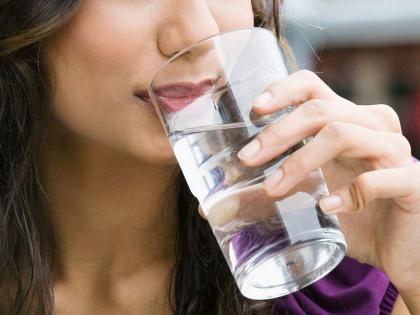Dehydration Signs: How to Know If You’re Drinking Less Water
By Lokmat Times Desk | Updated: November 15, 2025 15:34 IST2025-11-15T15:31:35+5:302025-11-15T15:34:05+5:30
Whenever something is wrong in our body, it gives us many clear signals. Talking about how to identify whether you are ...

Dehydration Signs: How to Know If You’re Drinking Less Water
Whenever something is wrong in our body, it gives us many clear signals. Talking about how to identify whether you are drinking less water or if your body is becoming dehydrated. It is important to recognize these signals in time and increase your water level, because lack of water can cause many health problems. You can keep an eye on the following key symptoms to check whether your body is properly hydrated or not.
The easiest and most reliable indicator is the color of your urine. If you are drinking enough water, the color of your urine is light yellow or almost white. But if you are drinking less water, the color of your urine appears dark yellow or orange. This indicates that the kidneys are concentrating waste products in the urine more due to the lack of water in the body. In addition, drinking less water makes you feel like you are urinating less and less frequently.
Thirst and dry mouth: Thirst is the most obvious sign of dehydration. However, if this thirst is frequent and intense, it can be a sign of severe dehydration. Along with this, dry mouth, lips, and tongue are also signs of dehydration. The salivary glands need water to produce saliva, and when the water content is reduced, the mouth feels dry and sticky. This can also cause bad breath.
Fatigue and Headache: When the body lacks water, the blood volume decreases and the heart and brain have to work harder to pump blood. This can make you feel constantly tired, sluggish, and lack of energy. Often, headaches also start due to dehydration. The blood vessels in the brain are strained due to the reduced water content, which causes these headaches.
Constipation and Dry Skin: Water is essential for digestion. When the body lacks water, the digestive system absorbs more water from the large intestine to save water. This increases the problem of constipation and makes the stool harder. Similarly, insufficient water affects your skin. The skin starts to look dry, dull, and less elastic, which makes wrinkles and fine lines on the skin more prominent.
Open in app